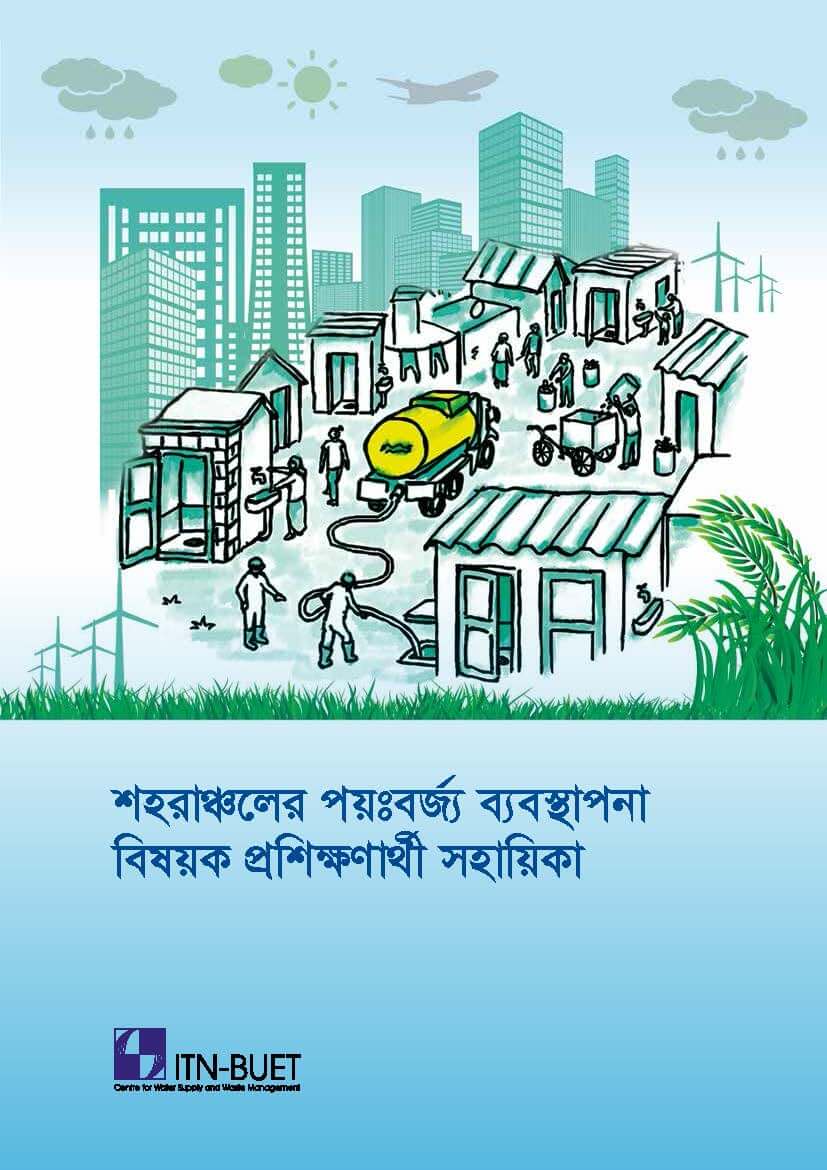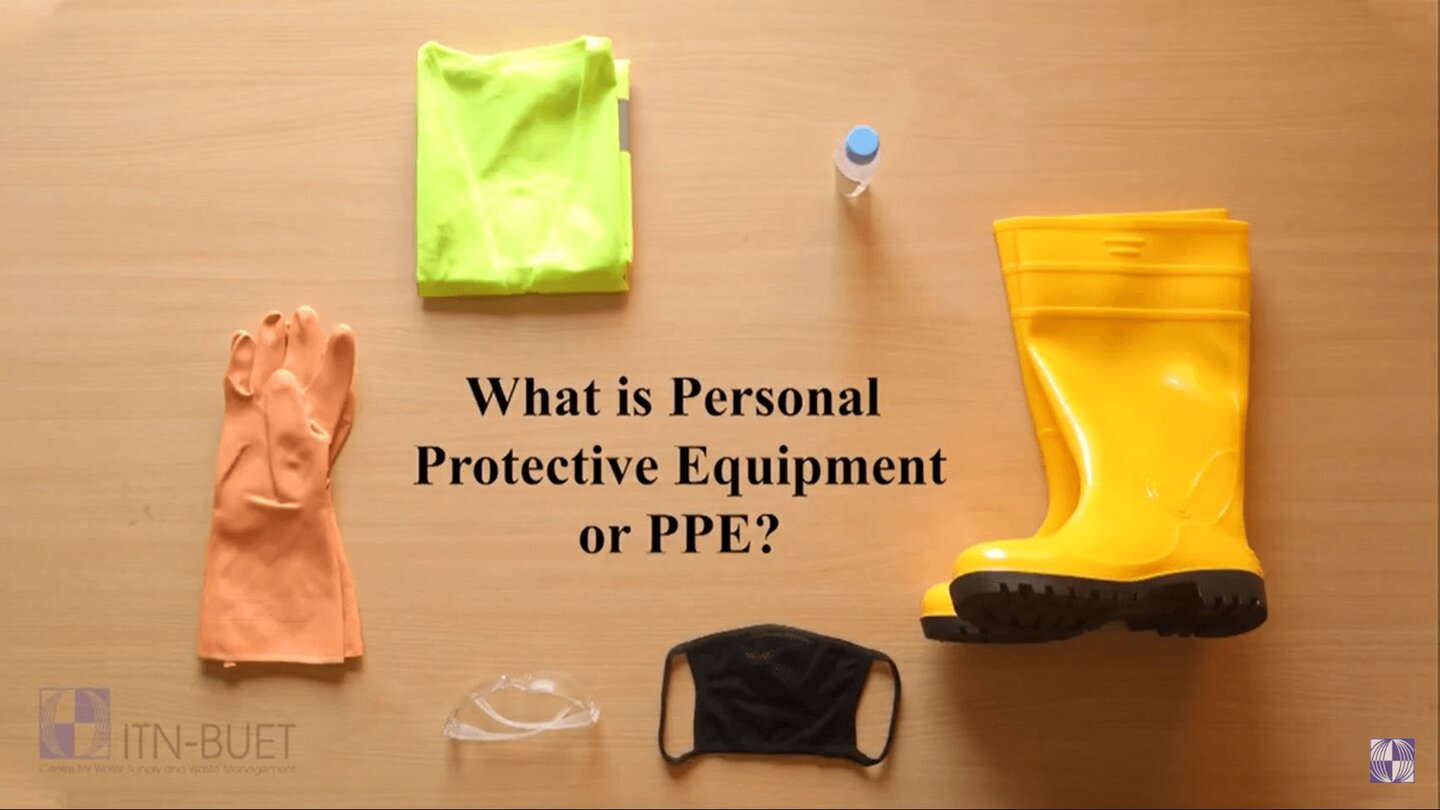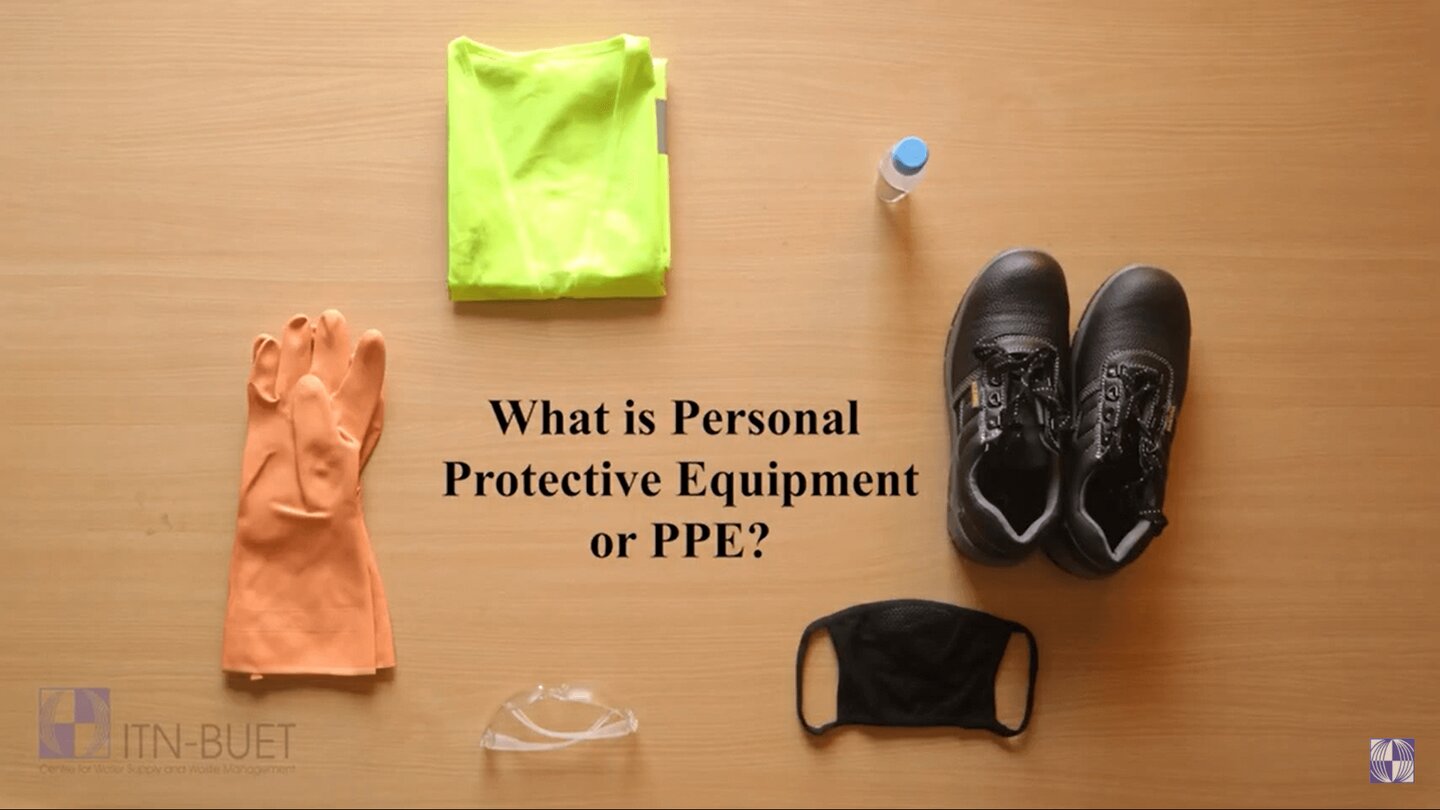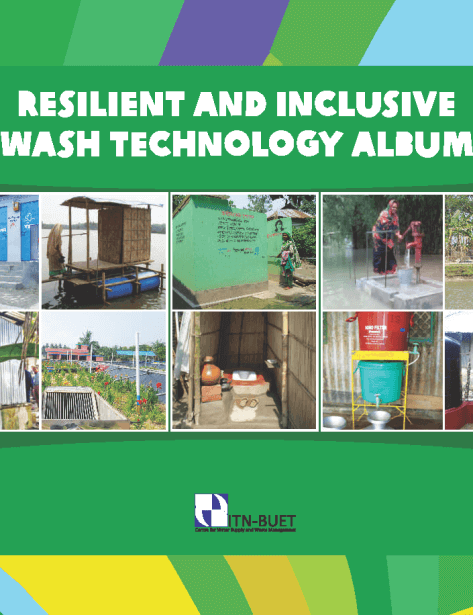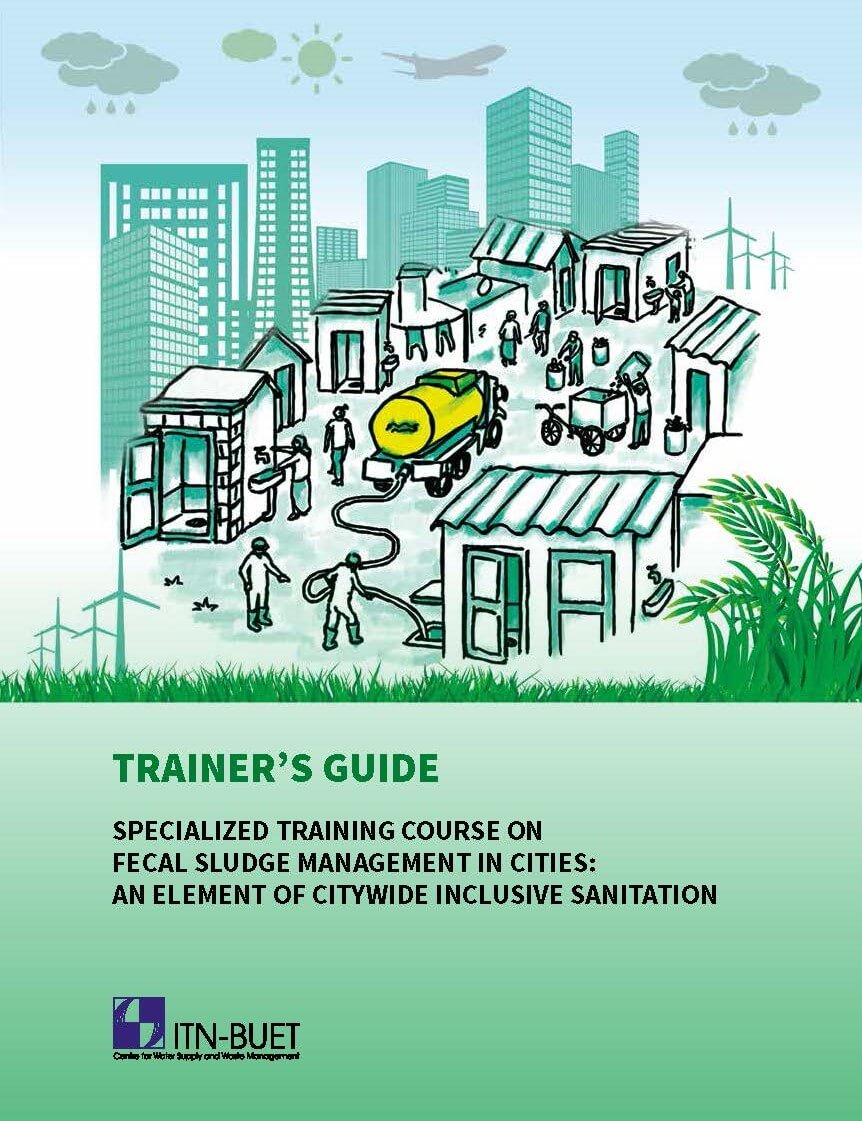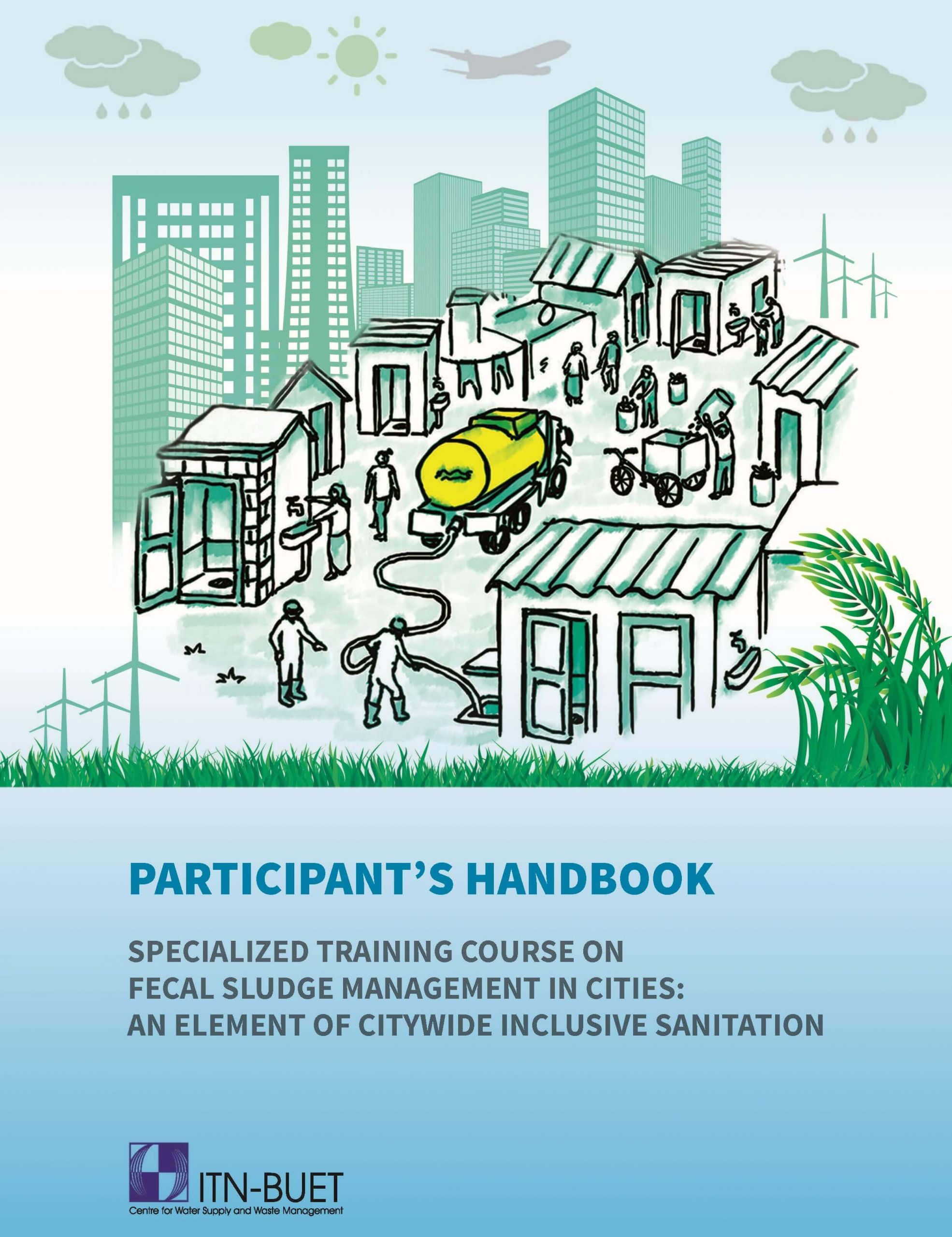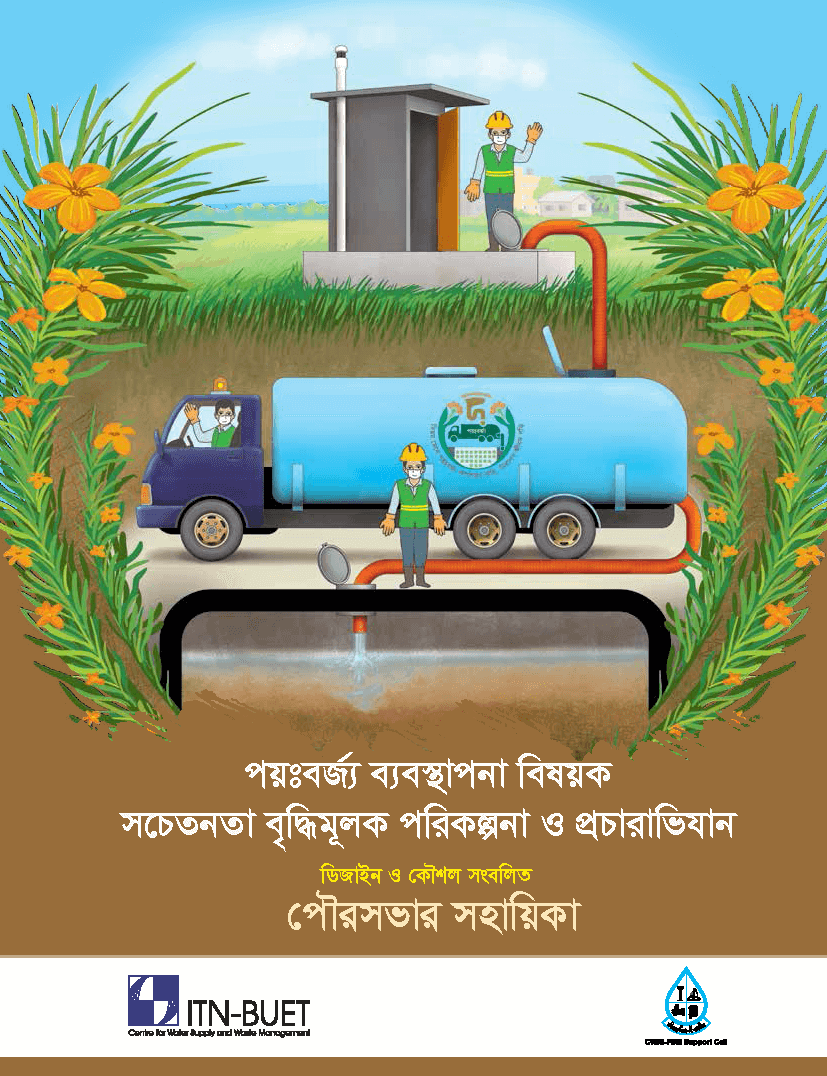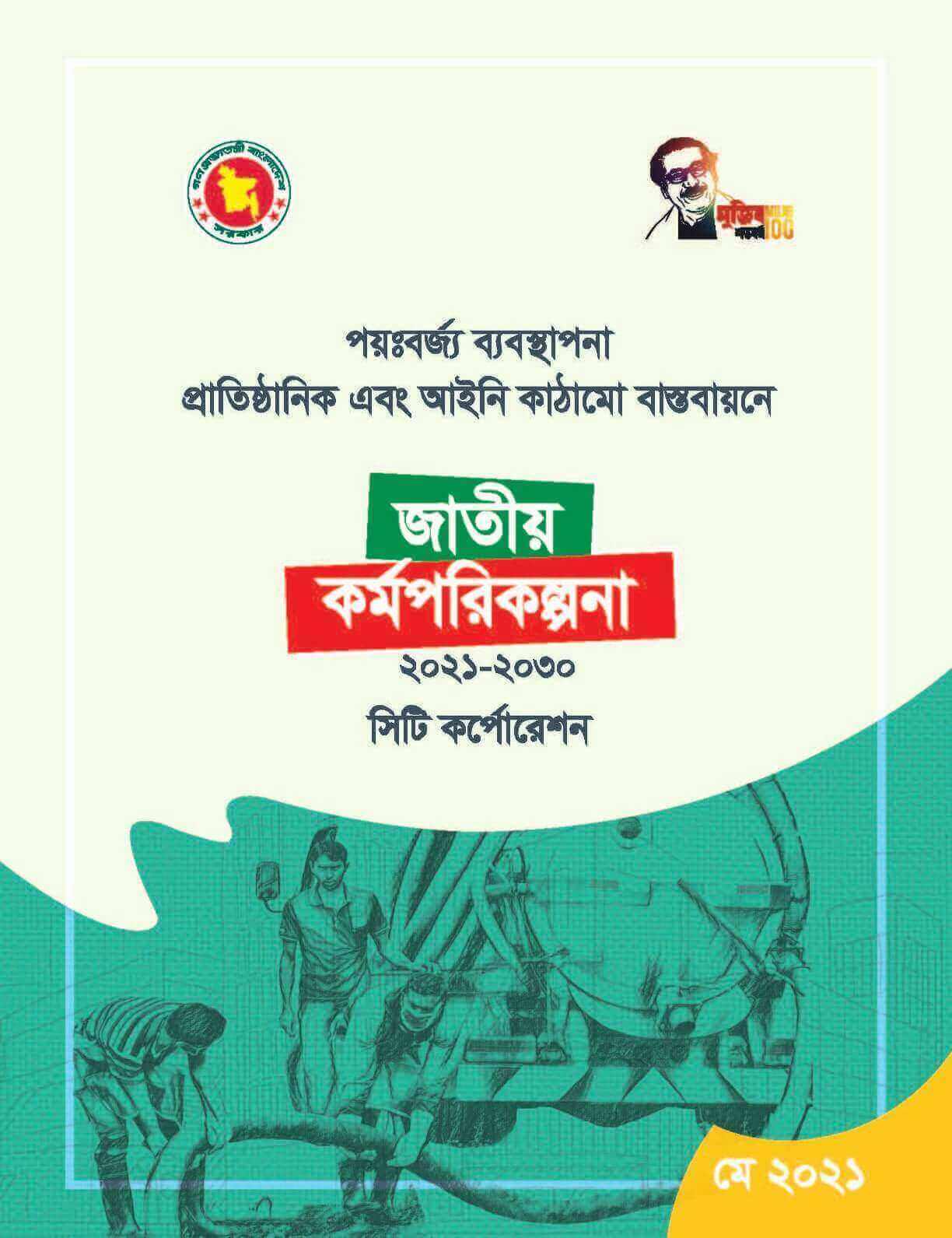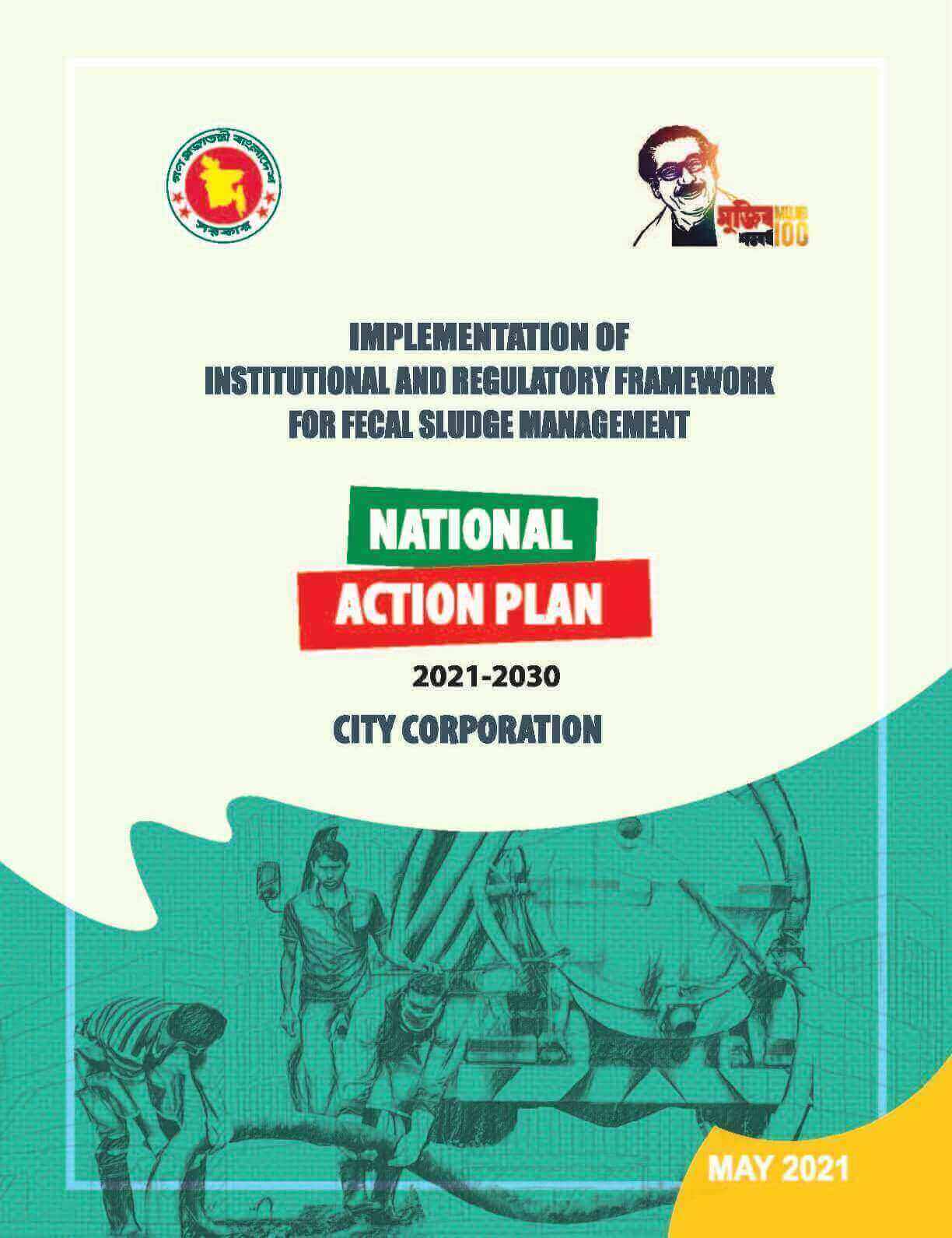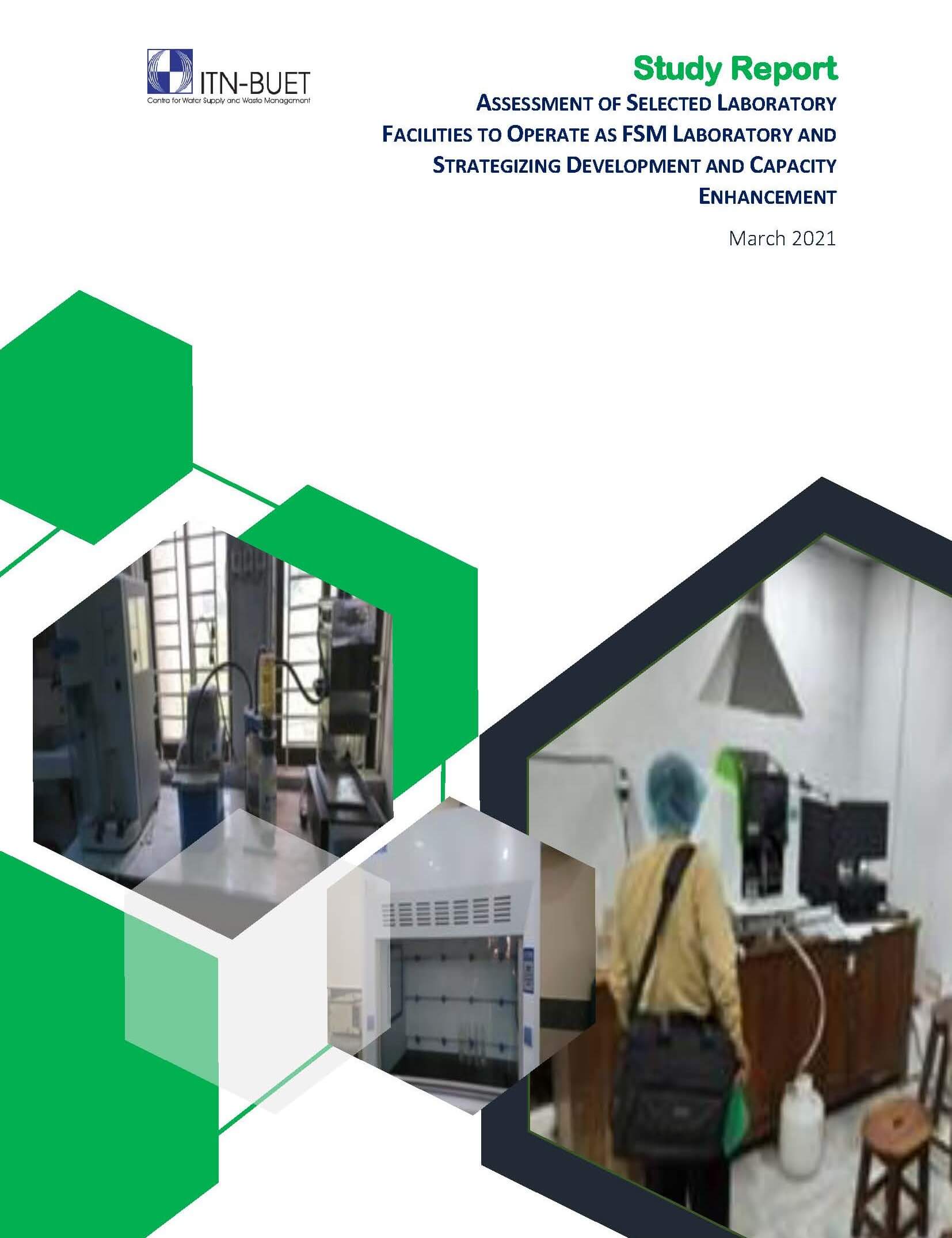ITN-BUET
শহরাঞ্চলের পয়ঃবর্জ্য ব্যবস্থাপনা বিষয়ক প্রশিক্ষণার্থী সহায়িকা
Participant’s Handbook for Specialized Training Course on Fecal Sludge Management in Cities: An Element of Citywide Inclusive Sanitation-Bangla Version.
Publisher(s): ITN-BUET
2021
General guidelines for the use of PPE for Drain cleaner, public/ community toilet cleaner
General guidelines for the use of PPE for Medical Waste Collector.
Publisher(s): ITN-BUET
2021
PPE for Road Sweeper, Household waste collector, Secondary station waste collector
Can you imagine toilets without proper sewer systems? Yuck!
Well in urban areas, you’ll find them everywhere! In fact, Toilets are either connected to a storm drain, a collection pit or in better cases – a septic tank.
So what happens when the collection systems fill up? They overflow into drains…..and with pits, most of the cases involve manual scavenging.
Publisher(s): ITN-BUET
2021
Resilient and Inclusive Wash Technology Album
“Resilient and Inclusive WASH Technology Album” is a readily usable album with details of technologies including key features, suitability, challenges, important operation and maintenance requirements and detail drawings, so that it can be contextualized as necessary during of its use.
Publisher(s): AusAid, ITN-BUET, OXFAM
2018
Specialized Training Course on Fecal Sludge Management in Cities: An Element of Citywide Inclusive Sanitation-Trainer’s Guide
The module can be contextualized for any developing country. We hope the government agencies and sector partners will utilize the Trainer’s Guide to enhance the capacity of city officials regarding FSM and CWIS. The Trainer’s Guide has been designed as a living document that will be enriched gradually to achieve its desired objectives and impacts.
Publisher(s): ITN-BUET
2021
Participant’s Handbook for Specialized Training Course on Fecal Sludge Management in Cities: An Element of Citywide Inclusive Sanitation
VIEW PARTICIPANT’S HANDBOOK DOWNLOAD PARTICIPANT’S HANDBOOK
Publisher(s): ITN-BUET
2021
Campaign Plan and design of BCC/IEC material on FSM for Paurashavas
পয়ঃবর্জ্য ব্যবস্থাপনা বিষয়ক সচেতনতা বৃদ্ধিমূলক পরিকল্পনা ও প্রচারাভিযানের ডিজাইন ও কৌশল সংবলিত পৌরসভার সহায়িকা
Publisher(s): ITN-BUET
2020
National Action Plan for Implementation of Institutional and Regulatory Framework (IRF) for Fecal Sludge Management for City Corporation (Bangla Version)
পয়ঃবর্জ্য ব্যবস্থাপনার (এফএসএম) প্রাতিষ্ঠানিক এবং আইনি কাঠামো বাস্তবায়নে জাতীয় কর্মপরিকল্পনা (২০২১-২০৩০) – সিটি কর্পোরেশন
2021
National Action Plan for Implementation of Institutional and Regulatory Framework (IRF) for Fecal Sludge Management for City Corporation
The document “Institutional and Regulatory Framework for Fecal Sludge Management” provides a guideline for implementing Fecal Sludge Management. It builds upon a comprehensive framework for consistent and harmonized interventions maintaining pace towards Fecal Sludge Management.
2021
Assessment of Selected Laboratory Facilities to Operate as FSM Laboratory and Strategizing Development and Capacity Enhancement
This Laboratory Assessment aims to evaluate the capacity of existing laboratories in technical universities (CUET, KUET, RUET, and SUST) …
Publisher(s): ITN-BUET
2021


